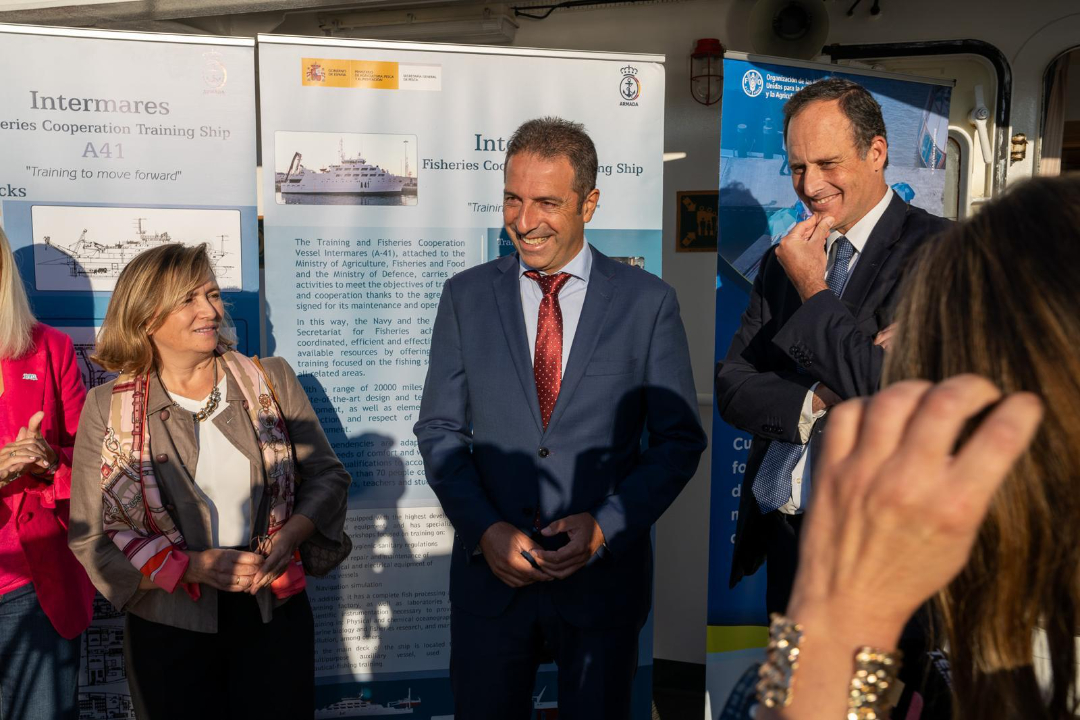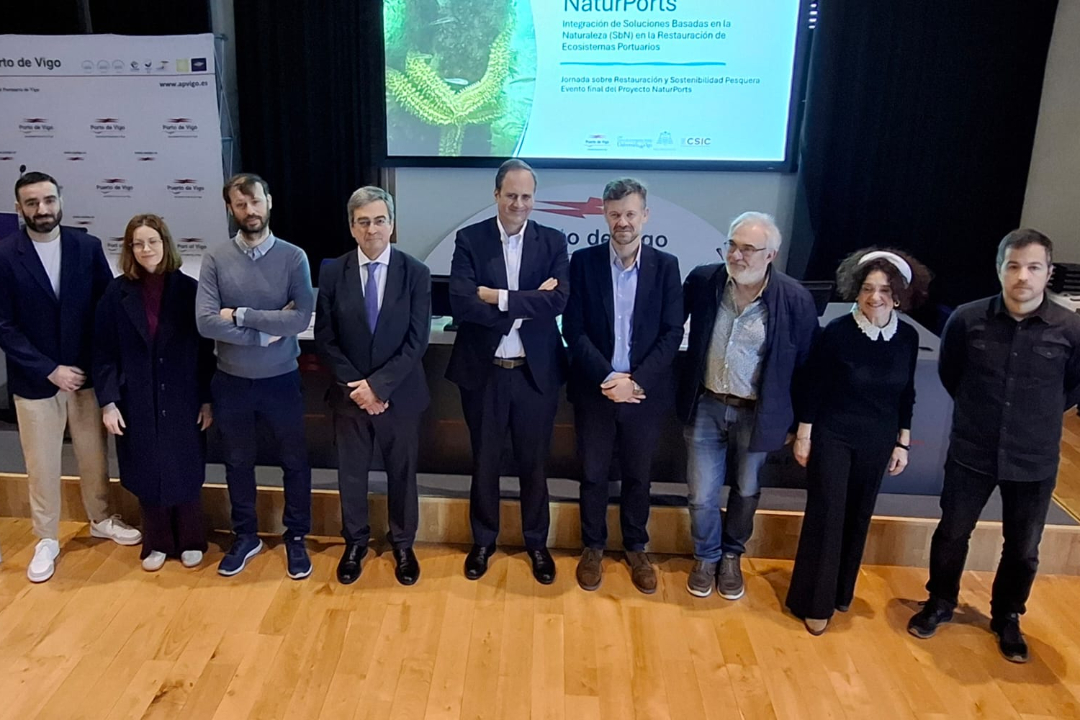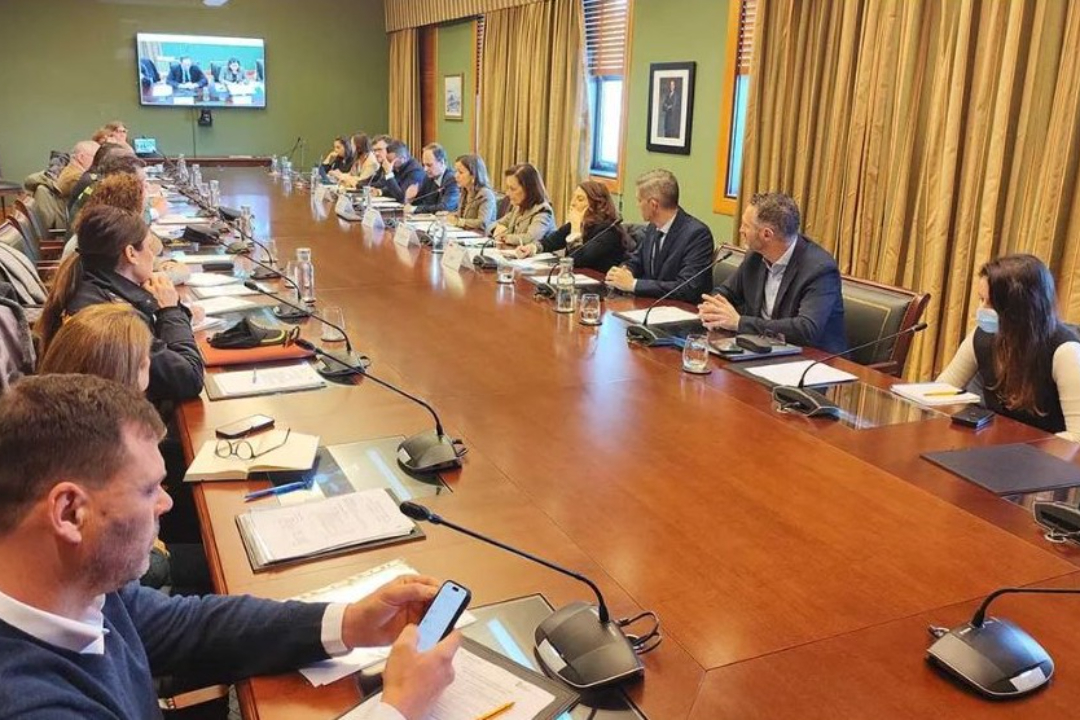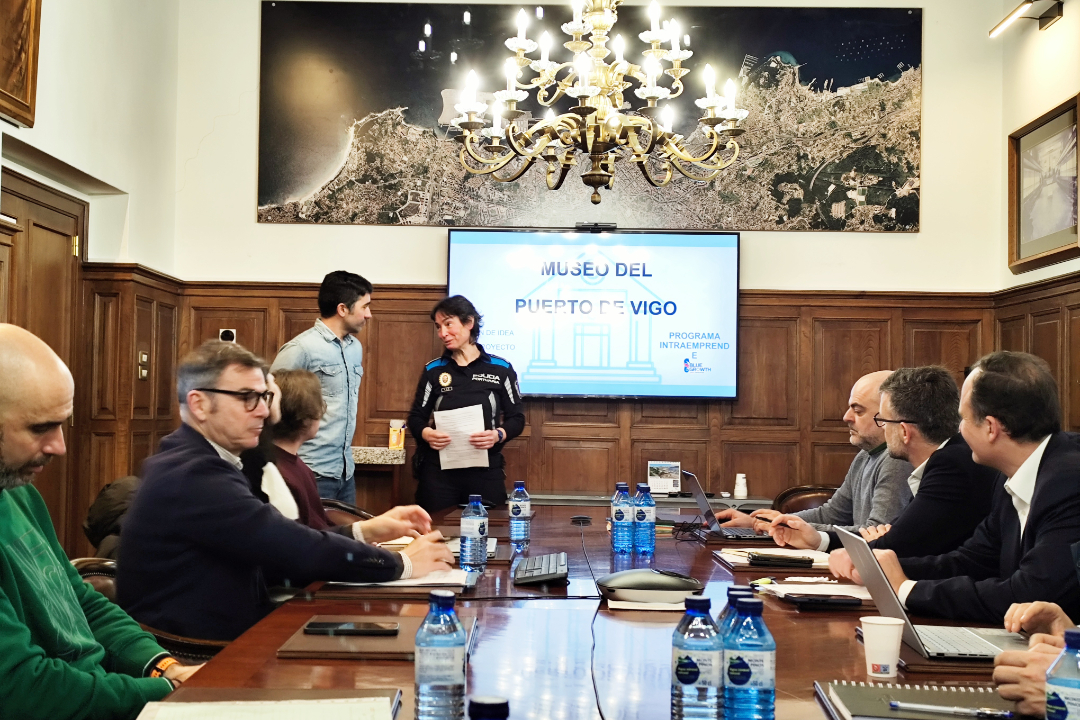THE PORT OF VIGO HOSTS THE 4TH EDITION OF THE FAO INTERNATIONAL FISHERIES INSPECTION TRAINING COURSE STARTING TODAY
Sep 9, 2024, 10:00:00 AM

- The 4th edition of the international fisheries
inspection training course has been inaugurated to support the implementation
of the "Port State Measures Agreement" (PSMA).
- Seventeen fisheries inspectors and officers
from seven Caribbean countries will participate, gaining tools and practices
over the next three weeks to apply in their respective countries in their
efforts to promote sustainable fishing.
- Carlos Botana advocates for "joint efforts
at all levels of control and inspection, from the origin to the destination of
products, to contribute to a viable fishing industry that provides livelihoods
for those of us living in marine-coastal areas."
- Over 70 inspectors from around the world
(Africa, America, etc.) have been trained at the Port of Vigo in recent years
to prevent, deter, and eliminate illegal, unreported, and unregulated (IUU)
fishing.
The Port of Vigo will host the fourth edition
of the FAO international training course on fisheries inspection from today
until September 26, 2024. The course supports the implementation of the Port
State Measures Agreement (PSMA), aimed at preventing, deterring, and
eliminating illegal, unreported, and unregulated (IUU) fishing.
This time, seventeen fisheries inspectors and
officers from the Caribbean will participate, learning from international
experts and teams from the Xunta de Galicia and the General Secretariat of
Fisheries. Over the next three weeks, they will gain tools and practices that
fishing ports in their countries can apply to promote sustainable fishing by
preventing, deterring, and eliminating IUU fishing.
Carlos Botana, the port's top official,
emphasized that "we work in coordination with the relevant
administrations," and that "we have launched several projects to
strengthen the inspection work carried out with great professionalism, focusing
on improving control processes at unloading points and in the fish
market." He added, "traceability is a priority for us."
During his address, alongside the Conselleiro
do Mar, Alfonso Villares; the Secretary-General of Fisheries, Isabel Artime;
the Executive Director of the European Fisheries Control Agency, Susan Steele;
and FAO PSMA Secretariat Officer Alicia Mosteiro, Botana stressed the
importance of "global and ongoing cooperation." He noted, "only
by working together at all levels of control and inspection, from the origin to
the destination of products, will we be able to contribute to a sustainable ocean
and, therefore, to a viable fishing industry that provides livelihoods for
those living in marine-coastal areas."
Additionally, the Port President highlighted
the need to embrace new clean energy sources, reduce CO2 emissions, clean the
oceans, and adopt a circular economy. The Port of Vigo has been working on this
since 2016 under its Blue Growth strategy, moving toward a more sustainable
port, committed to the development of its surroundings, its people, and its
environment.
However, Botana reminded the audience that
"we still have a lot to do." For this reason, he advocated for
"joint efforts to learn from other experiences and strengthen alliances to
contribute to sustainable fishing, mitigate climate change, and improve the
professions and quality of life of all people in our community who depend on
fishing and port activities."
In this context, he highlighted FAO's efforts
in capacity-building initiatives, such as this course under the PSMA framework,
and the launch of a Capacity-Building Program within the Blue Ports Initiative.
"The identification of common interest
topics, the involvement of relevant experts, the exchange of best practices,
and the creation of tools from these training actions will help all of us
continue to advance," Botana emphasized.
In this sense, he noted that the Port of Vigo
actively contributes to the PSMA and the Blue Ports Initiative by providing
technical and financial resources to help develop these programs. "We are,
and will continue to be, supporting FAO's work and the Blue Ports Network,
which could be a solution to the major challenges ahead," he concluded.
Related projects


